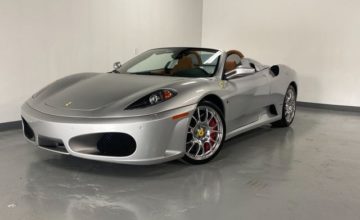The Peugeot Family has been in business in some form or another since the seventeen hundreds. From the production of coffee to bicycles in the early part of the twentieth century, automobiles would be the next big thing to come along.
The company produced its first automobile in 1889. The car was steam powered and had three wheels. However, steam proved to be unwieldy and cumbersome for use in any personal passenger vehicles. After meeting with Gottlieb Daimler, Armand Peugeot decided that the gasoline internal combustion engine was much more suited to what he had in mind. Peugeot acquired a license from Daimler to use their engines in Peugeot vehicles. Cars produced by the French company would remain powered by Daimler engines until the first Peugeot engines were developed in 1896.
Just as it had always been, Peugeot continued to produce a variety of products up through the turn of the twentieth century when Armand Peugeot formed his own company to focus exclusively on automobile manufacturing.
Peugeot would become an early influence on car racing in Europe and would remain a power in this arena for years to come. Around the time of World War 1, Armand decided to try his handed at motorcycles. His family had longed produced some of the finest bicycles in Europe. Armand was just as successful at motorcycles as his family had been with bicycles and the Peugeot Auto Company has produced motorcycles every since.
Once Europe became embroiled in World War I, Peugeot, just as most other manufacturers of the time, turned their attention to the war efforts. They eventually became a major manufacturer of arms and military vehicles throughout the remainder of the war. Once the allies were victorious, the focus once again turned to car production.
The French car company entered the United States market in 1958 with the Peugeot 404. Peugeot was never able to find its niche in American society and for the most part consumers simply ignored the brand. After several attempts to pique the curiosity of the American car buyer, Peugeot decided to cut its losses and withdrew from the American market. This did not exclude the company from going after American car manufacturers in Europe, however. In 1978, the company took over Chrysler Europe. Chrysler Corporation was suffering from heavy financial losses both at home and abroad and accepted the offer to take the ailing division off its hands almost immediately. Earlier in 1974, Peugeot had also acquired Citroen and for a brief period had interest in Maserati as well. The acquisition of so much debt so quickly proved nearly to be the undoing of Peugeot in the early eighties. The introduction of the popular Peugeot 205 was credited with the company’s recovery from the brink of financial ruin. While the 205 was able to save the company from complete collapse, Peugeot was still experiencing some financial stress.
For the future, Peugeot has announced a goal of selling 4 million units annually. In order to accomplish this, the French car manufacturer has plans of pursuing some of the more exotic markets in the world such as China, Russia and South America. Due to the weakening of the U.S. Dollar, there has been some talk of a return to the American market. At this point, that may well be speculation only.
About the Author
Ronnie Tanner

